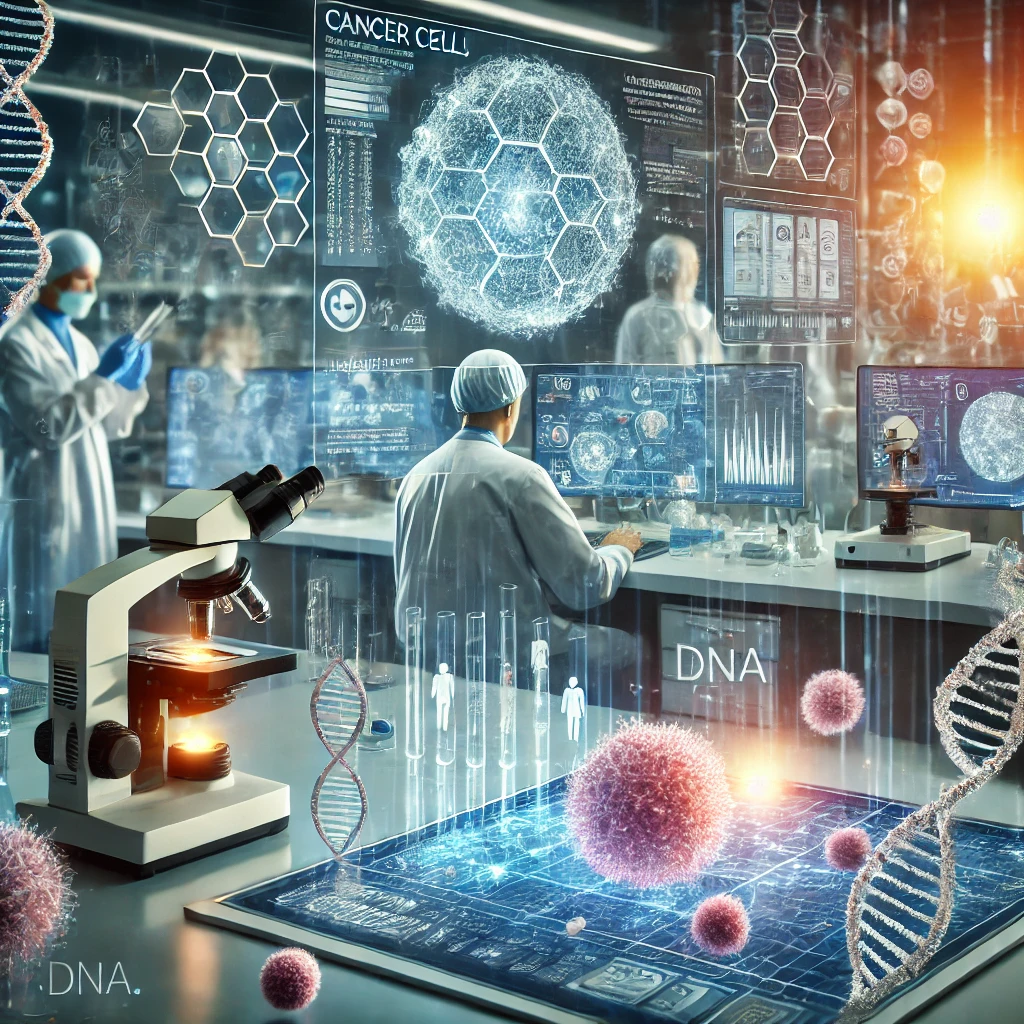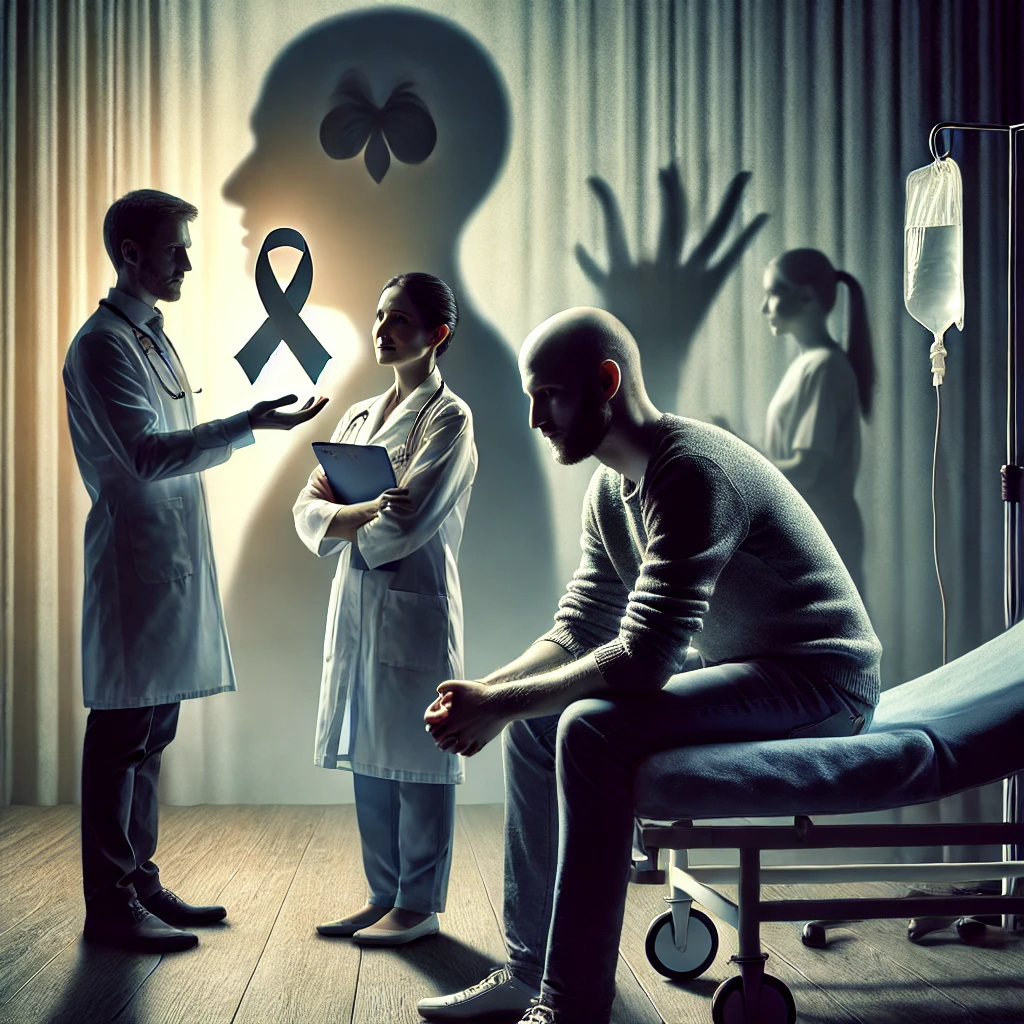
Innovations in Cancer Research: Exploring the ..
Nov 19 - 2024

By Dr. Julie Pratibha Singh, Scientific Advisor, Health29
Receiving a cancer diagnosis is often one of the most devastating moments in a patient’s life. Alongside the physical toll of the disease, the psychological impact can be overwhelming. Cancer patients often face emotional challenges that are deeply intertwined with their treatment journey. To explore this further, we interviewed Dr. Sashibhusan kumar Gupta, Ashtavakra Institute of Rehabilitation and Research, New Delhi and Dr. Priyanka Sharma, Psychologist, Raj Nagar Extention Healing Path, Ghaziabad, two expert Psychiatrist and Psychologist with vast experience in cancer care, to gain insights into the mental health challenges faced by cancer patients and the crucial role of psychological support.
Emotional Overwhelm at Diagnosis
As Dr. Sashibhusan Kumar Gupta explains, the moment a patient hears the word "cancer," their emotional state shifts dramatically. "Many of my patients express feelings of shock and disbelief during those initial moments. It’s a natural reaction because suddenly their life is divided into two parts: before and after the diagnosis." The immediate emotions are often fear and anxiety. Patients worry about survival, treatment options, and how their illness will impact their families. This sense of uncertainty, according to Dr. Sashibhusan, can lead to overwhelming stress and even paralysis in decision-making.
Anxiety and Depression: Hidden Struggles
Cancer patients frequently deal with anxiety about their treatment outcomes, potential side effects, and the fear of cancer recurrence. Dr. Priyanka Sharma points out that anxiety and depression are common but often overlooked aspects of cancer care. “Depression affects up to 25% of cancer patients, yet many don’t seek help. Some patients think they need to stay strong for their families, so they hide their emotional pain. This only deepens their suffering.” According to Dr. Priyanka, untreated anxiety and depression can diminish the patient’s ability to cope with treatment, leading to issues such as non-compliance with medications or therapy, lower quality of life, and increased physical symptoms like fatigue.
Why Psychological Support is Crucial
Incorporating psychological support into cancer care is essential for improving patient outcomes. “We must treat the whole person, not just the disease,” says Dr. Priyanka Sharma. Emotional well-being has a direct impact on physical recovery. Health29, for example, emphasizes holistic cancer care by offering access to psychological counseling, group therapy, and emotional support services, ensuring that patients do not face the burden of cancer alone. “Therapy can help patients process their diagnosis, confront their fears, and build coping strategies,” Dr. Priyanka explains. Furthermore, support groups connect patients with others going through similar challenges, reducing feelings of isolation and providing an outlet for shared experiences.
The Role of Family and Caregivers
When asked about the role of families and caregivers, Dr. Sashibhusan stressed their importance in the psychological well-being of patients. “Family support can make a big difference in how a patient handles their treatment. But families often don’t know what to say or how to help,” Dr. Sashibhusan acknowledges. It’s important for loved ones to listen, provide reassurance, and encourage the patient to seek mental health support when needed. Simple acts of being present and offering a listening ear can provide immense comfort during a challenging time.
Coping Mechanisms and Strategies
Through the interview, Dr. Priyanka also shared practical coping strategies that can benefit cancer patients. "Mindfulness, meditation, and breathing exercises are excellent tools for managing stress," they explained. These techniques help patients ground themselves in the present moment, reducing anxiety about the future. Additionally, journaling and creative outlets, such as art therapy, can offer emotional release and provide a sense of control in an otherwise unpredictable journey.
Breaking the Stigma Around Mental Health in Cancer Care
One of the most important takeaways from the interview with Dr. Priyanka was the need to break the stigma surrounding mental health in cancer care. “Seeking psychological help is not a sign of weakness. In fact, it is one of the strongest steps a patient can take to ensure they are mentally equipped to face the battle ahead,” Dr. Priyanka emphasizes. At Health29, we are committed to removing the stigma around mental health care by integrating psychological services into the patient’s overall cancer treatment plan.
Conclusion: Comprehensive Care for Body and Mind
Cancer affects not only the body but also the mind. Patients need comprehensive care that addresses both aspects of their well-being. As Dr. Sashibhusan highlighted, mental health support is an essential component of cancer care. Whether through therapy, mindfulness, or simply the compassion of loved ones, emotional support can improve outcomes and make the cancer journey less isolating. At Health29, we strive to provide that full-circle support, ensuring that patients have access to the psychological care they need as they navigate this challenging chapter of their lives.
Acknowledgment
We would like to thank Dr. Sashibhusan Kumar Gupta, Consultant Psychiatrist, Ashtavakra Institute of Rehabilitation and Research, New Delhi and Dr. Priyanka Sharma, Psychologist, Raj Nagar Extention Healing Path, Ghaziabad for sharing their valuable insights. Their expertise continues to guide our efforts in promoting a healthier future.
Email us support@health29.in
Copyright © 2022-24 Health29. All Rights Reserved. Design & Developed By : Innovative Solution Technologies | ISOLS Group